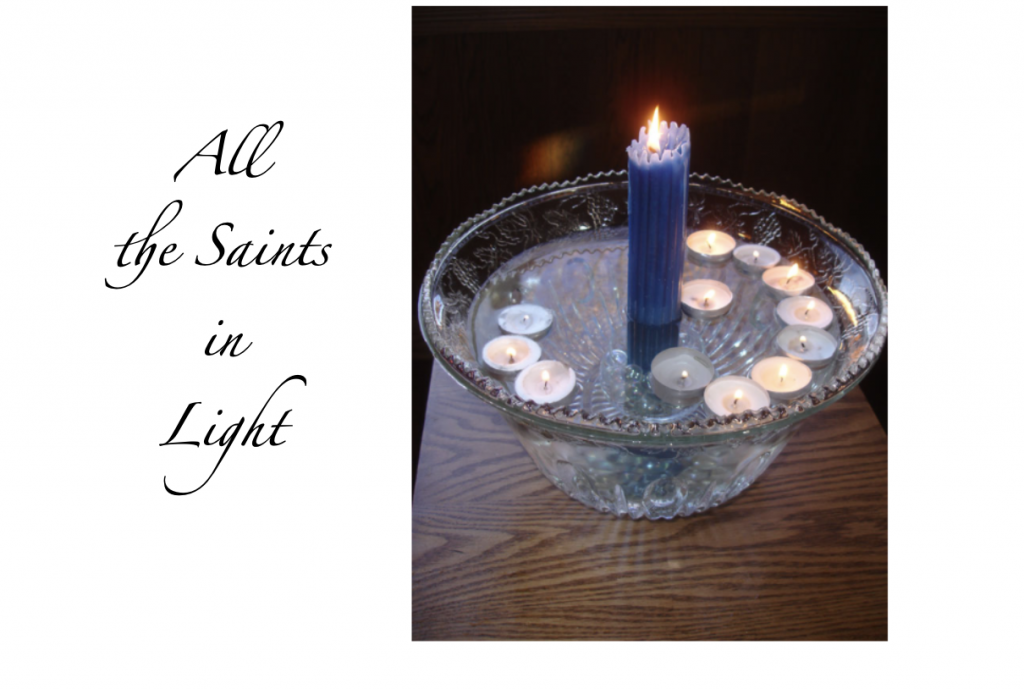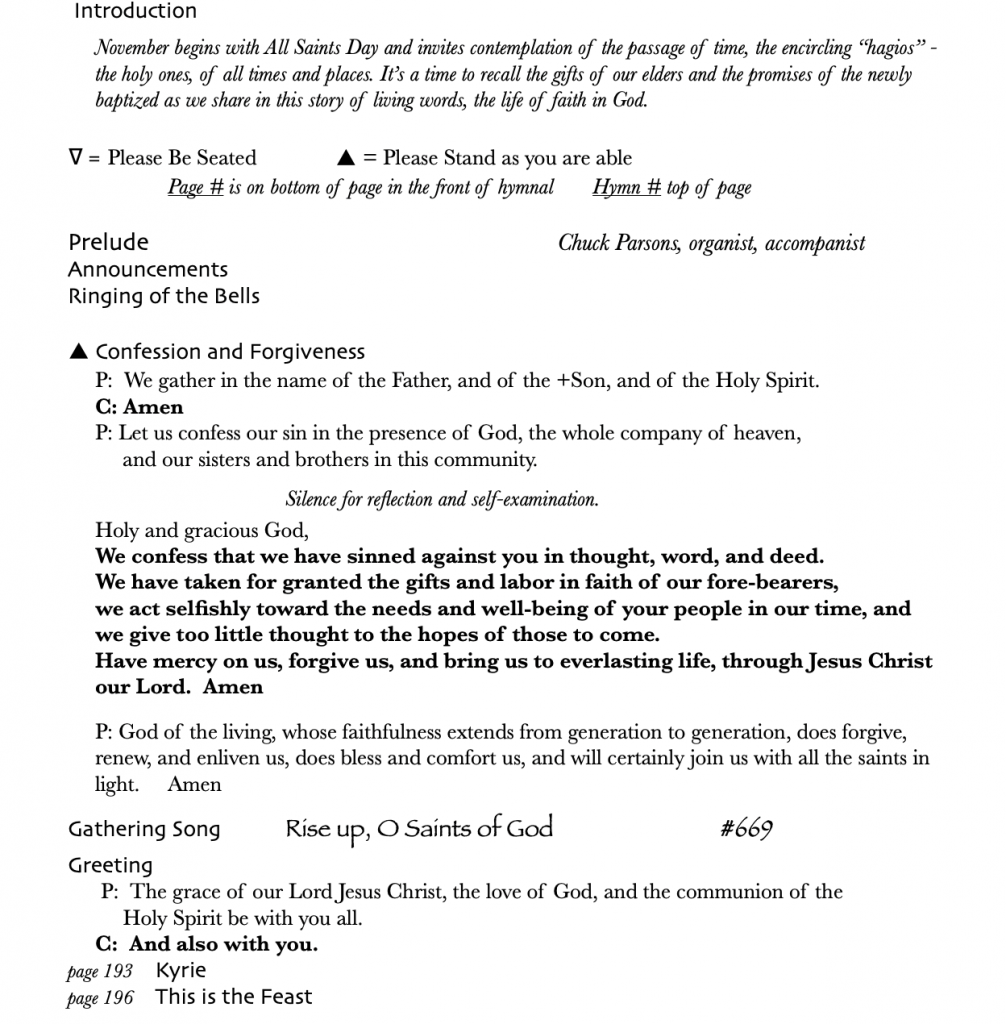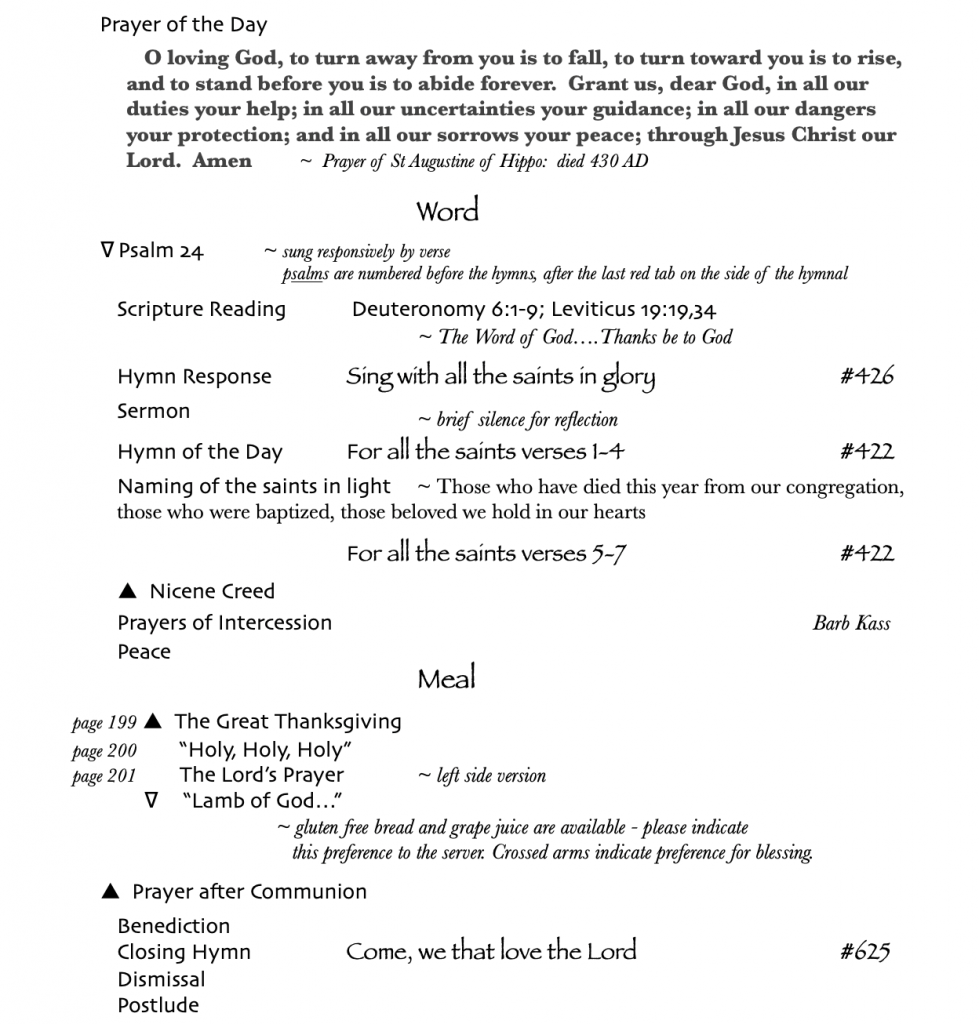


We left Moses last week being captivated by a bush that burned, but was not consumed and from which the voice of God spoke.
Moses did go back to Pharaoh and his people in Egypt, and he, his brother Aaron, sister Miriam, (and God) managed to get them out of the house of slavery. 40 years pass – you can read all about that on your own this year – and now Moses stands on the edge of the promised land, addressing his people in a very long farewell, which includes this:
Deuteronomy 6:1-9
“Now this is the commandment—the statutes and the ordinances—that the Lord your God charged me to teach you to observe in the land that you are about to cross into and occupy, 2so that you and your children and your children’s children, may fear the Lord your God all the days of your life, and keep all his decrees and his commandments that I am commanding you, so that your days may be long. 3Hear therefore, O Israel, and observe them diligently, so that it may go well with you, and so that you may multiply greatly in a land flowing with milk and honey, as the Lord, the God of your ancestors, has promised you.
4Hear, O Israel: The Lord is our God, the Lord alone. 5You shall love the Lord your God with all your heart, and with all your soul, and with all your might.
6Keep these words that I am commanding you today in your heart. 7Recite them to your children and talk about them when you are at home and when you are away, when you lie down and when you rise. 8Bind them as a sign on your hand, fix them as an emblem on your forehead, 9and write them on the doorposts of your house and on your gates.”
The second reading comes from Leviticus chapter 19, verses 19 and 34
Part of a list of laws concerning ethical relationships, Leviticus 19:18 states, “You shall not take vengeance or bear a grudge against any of your people, but you shall love your neighbor as yourself.”
Verse 34: “The alien who resides with you shall be to you as the citizen among you; you shall love the alien as yourself, for you were aliens in the land of Egypt: I am the LORD your God.”
All Saints Sunday is not a biblical festival – in that there aren’t biblical passages that specifically fit with it, or cause it to be, in the same way that Jesus’ birth stories fit with Christmas or the resurrection stories give rise to Easter. However, the definition of a saint is “holy one”, hagios in Greek, and stories of the Holy Ones are found throughout scripture: the patriarchs, prophets and other Old Testament figures are claimed as saints in addition to those we encounter in the New Testament. Moses certainly fits the characterization – so it’s not too odd to preach on an Old Testament text for All Saints day, but I’ve really struggled with it this time around.
My difficulty isn’t with Moses; it’s with the context of the reading in connection to the war between Israel and Hamas. This is one of those times when I’d much prefer to read the passage and give no background. But shirking something difficult is also a lost opportunity for our collective depth of thought, so, on we go.
Deuteronomy is literally the second giving of the law – formulated as a very long sermon or lecture spoken by Moses to the Israelites as they are about to enter Canaan, the land promised to their forebears and briefly occupied by those forebears – Abraham, Isaac and Jacob as resident aliens before a drought and famine sent them to Egypt, where they eventually became enslaved. The first reading of the law was in the book of Exodus early on in their time in the wilderness.
Now, that original generation has died and the new, greatly multiplied generation is about to take the land by force, instructed by Moses’ understanding of God’s word – a word that includes the commandment to wipe out all the current occupants of the land.
Deuteronomy 7
“When the Lord your God brings you into the land that you are about to enter and occupy, and he clears away many nations before you—the Hittites, the Girgashites, the Amorites, the Canaanites, the Perizzites, the Hivites, and the Jebusites, seven nations mightier and more numerous than you— 2and when the Lord your God gives them over to you and you defeat them, then you must utterly destroy them. Make no covenant with them and show them no mercy.
20Moreover, the Lord your God will send the pestilence against them, until even the survivors and the fugitives are destroyed. 21Have no dread of them, for the Lord your God, who is present with you, is a great and awesome God. 22The Lord your God will clear away these nations before you little by little; you will not be able to make a quick end of them, otherwise the wild animals would become too numerous for you. 23But the Lord your God will give them over to you, and throw them into great panic, until they are destroyed.”
There’s quite a lot more of that instruction. The setting for this greatest commandment – to love the Lord your God with all your heart and soul and strength – to be God’s holy people, is cast in terms of wiping out 7 other tribes of people, destroying all traces of their gods and shrines, and taking possession of land and homes and orchards that they did not build. There are pages and pages of instructions and fine points — the difficulty is with the ways and means of occupying the promise.
Two things: as I’ve said before, the first 5 books of the Bible, called the Torah, were put into final form by at least three different traditions of editors, the latest being at the end of, or just after, exile in Babylonia 600 or 700 years after the events narrated in the Torah took place.
Jewish understanding of scripture was that it was in flux, changeable as God inspired them to understand the holy word in different ways to meet altered circumstances. So, Moses’ words may have been altered several times over the editorial processes as they spoke to different situations of the Israelites social/political/religious life. We’ll never know. As the Babylonian exiles tried to make sense of their catastrophic situation, they looked back to these early stories for rationales of their failure and God’s punishment and for continued hope of the promise of blessing. Their own judgment of their history is that they persistently failed to uphold the law and these commands and so incurred just punishment. Moving into the promised land and wiping out every previous occupant was one of the failures. That didn’t happen. Remnants were left. They did intermarry and make treaties, thereby undermining the purity of their religious lineage and practices.
Today, especially in this latest version of the war between Israel and Palestine, Zionist Christians point to this particular step – the necessity of current Israel taking back the land promised to Abraham, Isaac and Jacob and occupying it solely (wiping out the Palestinians) – as a key action that will initiate the kingdom of God coming again in final fulness. When we pray, “Come Lord Jesus, may your kingdom come,” that is what a certain element of our Christian brothers and sisters is looking for. They are routing for Israel in this war, not for Israel’s sake, so much as for the kingdom to come, for the end time prophesies to click into place.
So, the scriptural context of this holy commandment to love, is complicated on many levels of theology and geo/political perspective.
The second thing is to point out that alternative actions were also always part of the ancient Israelite holiness codes. They did not have a black and white or static understanding of God’s will for them. The multiplicity of laws were set in place to safeguard the core. Leviticus is the handbook for priestly and communal behavior. Chapter 19 begins with the commandment, “You shall be holy, for I the LORD your God am holy” (19:2). The rest of the chapter, then, instructs the Israelites on how to “be holy.” The list of laws includes many having to do with relationships, from honoring parents (19:3) to loving the aliens who live in their midst (19:33-34). To “be holy” has to do with treating other people with justice and mercy, caring for the poor (19:9-10), being honest (19:11-13, 35-36), having respect for elders (19:32), and, in general, acting with moral and ethical integrity.
At the heart of these laws is “You shall love your neighbor as yourself” (19:18). It is part of a unit of verses instructing the Israelites not to hate one another, not to take revenge or bear a grudge against one another, but to love one another.
At the end of the chapter, it says this: “The alien who resides with you shall be the same to you as the citizen among you; you shall love the alien as yourself, for you were aliens in the land of Egypt.” The commandment to “love your neighbor as yourself” is to be understood, then, as applying not only to the inner group or family. The command is to love the “alien,” the foreigner, the outsider to one’s community, as if they were your own.
When Jesus is asked by the religious authorities which commandment is the greatest, he responds by quoting Deuteronomy 6:5 and Leviticus 19:18: “‘You shall love the Lord your God with all your heart, and with all your soul, and with all your mind.’ This is the greatest and first commandment. And a second is like it: ‘You shall love your neighbor as yourself.’ On these two commandments hang all the law and the prophets.” Asked to define the neighbor, Jesus tells the parable indicating that it is the enemy and religious outsider, the mixed blood Samaritan, who acted with mercy, integrity and love.
So who is a saint? One is holy who follows these two commandments: loving God with all of your being and behavior, and demonstrating that holy love toward people – all people, not just the people who are like us or are easy to love.
If this is still the standard, then sainthood remains a difficult achievement.
I read an essay by New Yorker columnist David Brooks this week, entitled, “How to stay sane in brutalizing times”. He suggests two mindsets – the first is learned from the ancient Greeks who adopted a tragic sensibility. He writes, “This sensibility begins with the awareness that the crust of civilization is thin. Breakdowns into barbarism are the historic norm. Don’t fool yourself into believing that you’re living in some modern age, too enlightened for hatred to take over.”
He lifts humility and prudence from the Greek tragedies saying, “The tragedies that populated Greek stages sent the message that our accomplishments were tenuous. They remind us that it’s easy to become proud and conceited in moments of peace. We begin to exaggerate our ability to control our own destinies. We begin to assume that the so-called justice of our cause guarantees our success. Humility is not thinking lowly of yourself; it’s an accurate perception of yourself. It is the ability to cast aside illusions and vanities and see life as it really is.”
The second mindset is from the Abrahamic faiths. He writes,
“This mentality celebrates an audacious act: the act of leading with love in harsh times. Of course there are toxic people in the world [who are] not going to change just because [their] opponents start feeling warm and fuzzy toward [them]. Genocidal fanatics … need to be defeated by force of arms [and the power of law].
“But most people — maybe more than you think — are peace- and love-seeking creatures who are sometimes caught in bad situations. The most practical thing you can do, even in hard times, is to lead with curiosity, lead with respect, work hard to understand the people you might be taught to detest.
“That means seeing people with generous eyes, offering trust to others before they trust you. That means adopting a certain posture toward the world. If you look at others with the eyes of fear and judgment, you will find flaws and menace; but if you look out with a respectful attitude, you’ll often find imperfect people enmeshed in uncertainty, doing the best they can.
“Will casting this kind of attention change the people you are encountering? Maybe; maybe not. But this is about who you are becoming in corrosive times. Are you becoming more humane or less?”
____
Becoming more humane is a good place to begin in becoming a Holy One. Being a good human creature is a good launching pad; getting back to our origins in the humus, the dust, the beginnings of God’s image imprinted on us, however marred or dingy it has become. The Holy ones in our lives stand out because they emanate love and humility and a deep kind of peace or joy that isn’t really commensurate with reality. They have found something truer to follow.
“You shall love the Lord your God with all your heart, and with all your soul, and with all your mind, (Jesus added that one) and with all your strength. ‘ ‘You shall love your neighbor as yourself.”
Neither of these commands are easy or straightforward. They might get you into trouble. Biblical saints were mostly in trouble, so don’t let that worry you.
Rise up, O saints of God, rise up in love for the sake of the world in great need of humble and compassionate zeal. God will go with you.